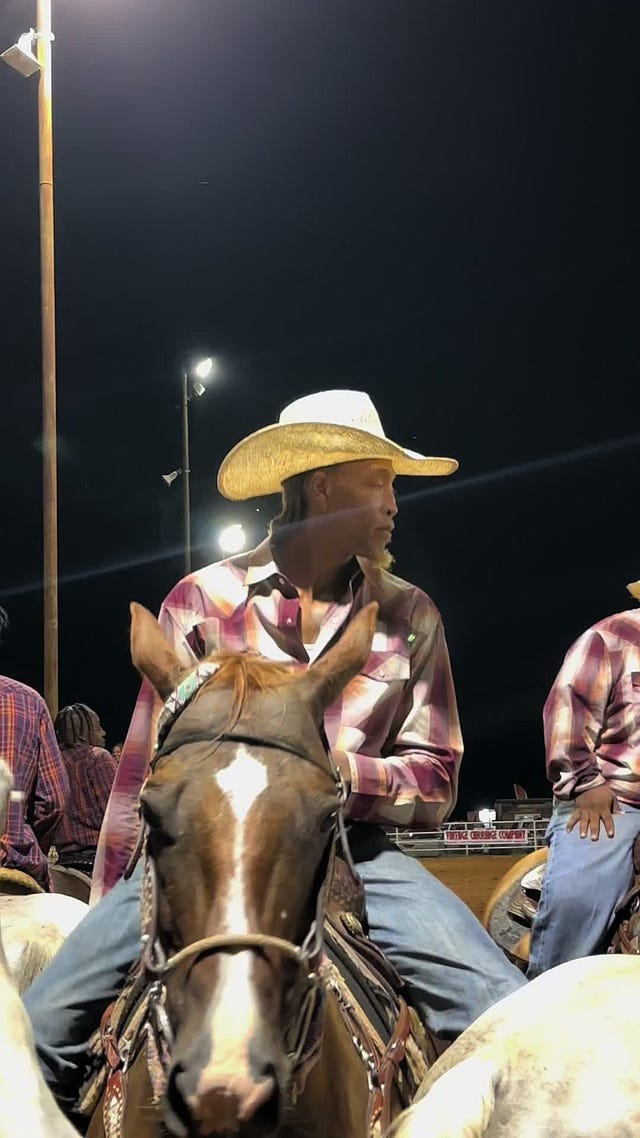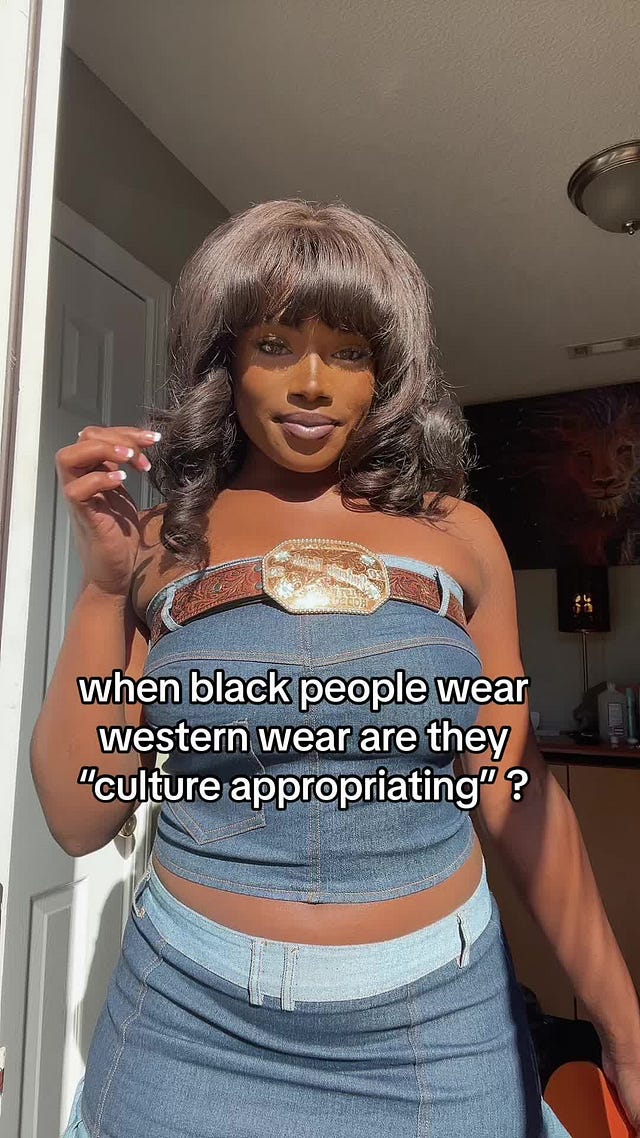Beyoncé’s CMA Snub Only Further Proves That Black Country Artists’ Recognition is Long Overdue
So, here’s the breakdown–”Cowboy Carter” didn’t get nominated for any CMAs.
Like what you read? Liking posts on Substack, sharing, and subscribing are all much appreciated ways to support the work of Words From My Wits’ End. Talk soon<3
Today the Country Music Awards announced their 2024 nominations. Among the nominees were Kacey Musgraves, Zach Bryan, Lainey Wilson, Luke Combs, Morgan Wallen, and more. But notably, one of the biggest country albums of the year was entirely snubbed–Beyoncé’s “Cowboy Carter.”
The singer was raised in Houston Texas, and is half Louisiana Creole through her mother’s lineage. Thus, her southern roots have remained a throughline throughout Beyoncé’s career. A negative experience in 2016 inspired her to stake her ground in the country music world with a near anthropological level study of the genre.
The irony of the snub is not lost on critics and fans alike–Rolling Stone even called the snub “predictable” due to the aggressive negative press surrounding the singer’s 2016 performance of “Daddy Lessons” at the CMAs alongside the Chicks. In the near decade since this controversial performance, Nashville remains stuck in its internal inclusivity war, particularly when it comes to Black women. The snub, while not surprising, is certainly disappointing.
While Beyoncé first broke through as a member of R&B group Destiny’s Child, she has continued to experiment with a variety of different genres, from pop to house and most recently country. But as Beyoncé sings on her “Cowboy Carter” album opener “American Requiem”, “Hello, my old friend/You change your name, but not the ways you play pretend/American Requiem/Them big ideas (Yeah), are buried here (Yeah).”
Much like America itself, the CMAs and country music at large have moved towards being progressive on the outside while still upholding oppression of marginalized communities internally. If country music is the most distinctly American music genre, what does it say about America that it is also the most exclusive?
One of the quintessential character archetypes of American country music is the cowboy. Western films forever romanticized the rugged individualism of the Western frontier, when in reality Hollywood’s white actors whitewashed the truth–that an estimated one in four cowboys in the 20th century was Black.
 Tiktok failed to load.
Tiktok failed to load.Enable 3rd party cookies or use another browser
According to research conducted by the Smithsonian surrounding the writings of Black cowboy Nat Love, much of the success of the ranching industry hinges on the structures built by Black cowboys. To this day, various rodeos across the country celebrate Black cowboy culture and encourage Gen Z riders to get involved.
Western culture aside, Black Americans undoubtedly shaped the cuisine of the southern U.S., and provided the sonic foundations in blues, bluegrass, and soul that listeners hear in country music today. Pew research center reports that 56% of Black Americans live in the southern United States as of this year.
Newcomer Shaboozey is nominated for song of the year and for best new artist due to the success of his track “A Bar Song (Tipsy),” but he also featured on “Cowboy Carter.” The CMAs acceptance of Shaboozey but shut out of Beyoncé proves a classic case of misogynoir, a specific brand of misogyny that impacts Black women.
Shaboozey was quick to stand by Beyoncé and the many collaborators on “Cowboy Carter,” thanking her for trailblazing modern country music. In the nearly 60 years of the CMAs, a Black woman is yet to be nominated for Album of the Year. “Cowboy Carter” is a stark reminder of this, as mentioned and featured is Linda Martell, the first Black woman to play a solo show at Nashville’s storied Grand Ole Opry in 1969. Martell was effectively silenced by the prejudice of the industry following her album release of “Color Me Country” in 1970, until Beyoncé shone a spotlight on her this year.
Also featured on “Cowboy Carter” is a cover of the Beatles’ “Blackbird,” which Paul McCartney initially penned in 1968 in homage to the Black women activists at the heart of the Civil Rights movement. Beyoncé’s cover is not only a thoughtful homage, but a reminder that the fight for true equality persists.
Beyoncé’s “Cowboy Carter” boosted the streaming numbers of all of its featured artists, and earned her 8th number one album on the Billboard 200 chart. Beyoncé’s “Texas Hold ‘Em” experienced major chart success, and should have especially received a nod. At the end of the day, Black women are the ones blazing the trails and discovering new frontiers, even if the industry isn’t ready to admit that black birds are the first to fly.






